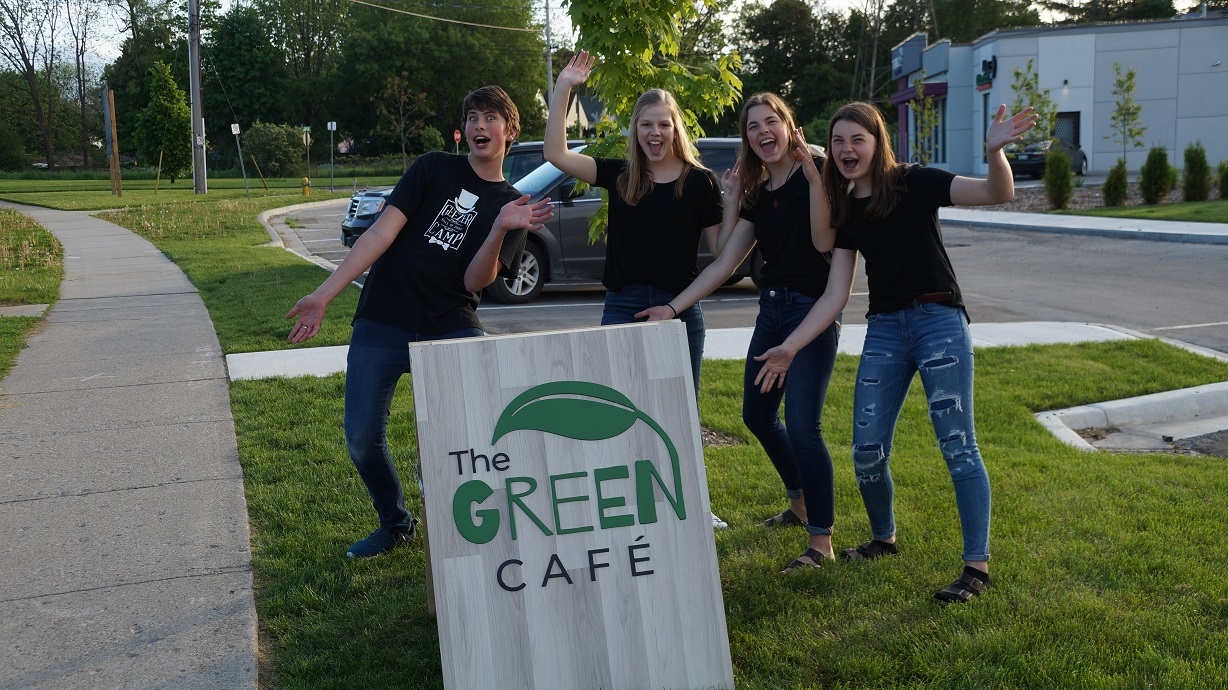
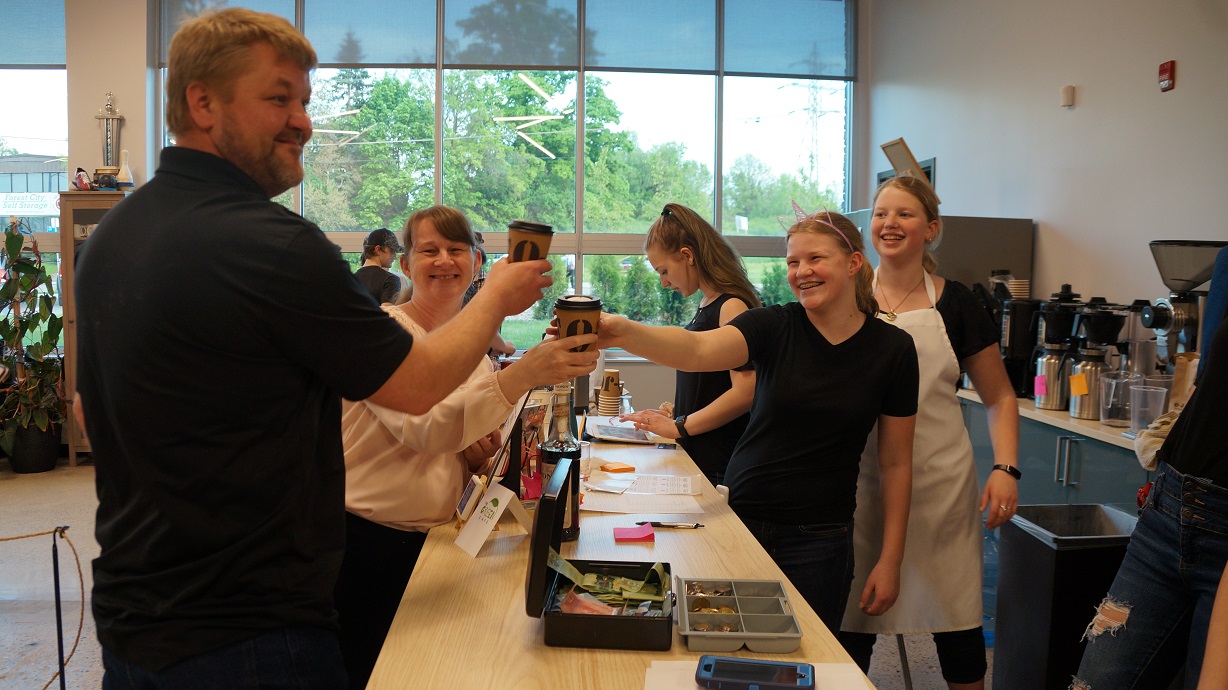
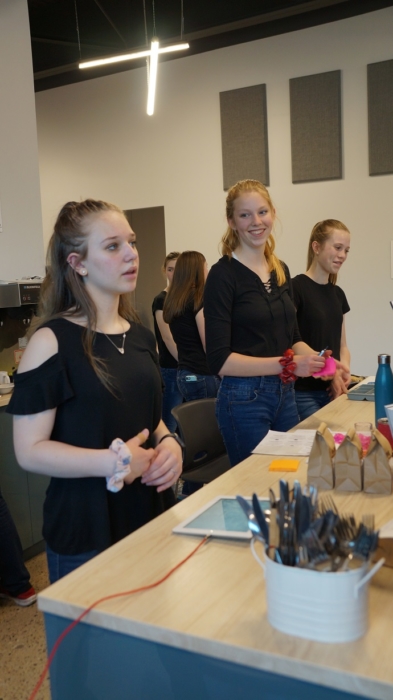
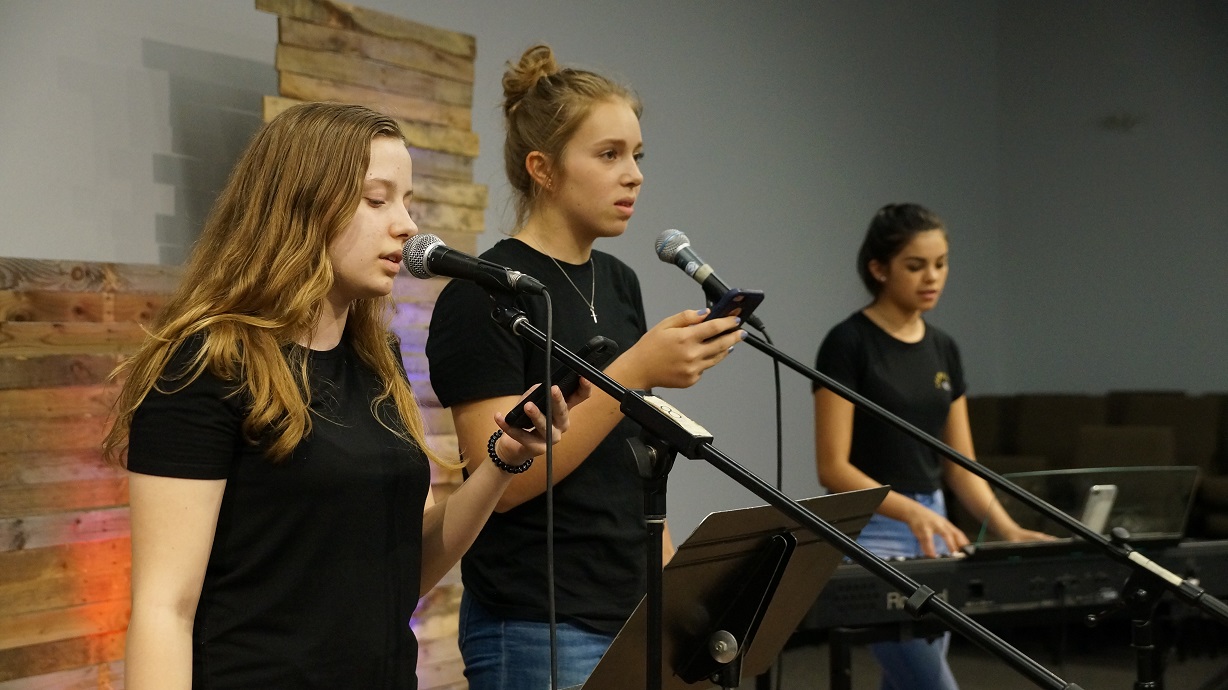
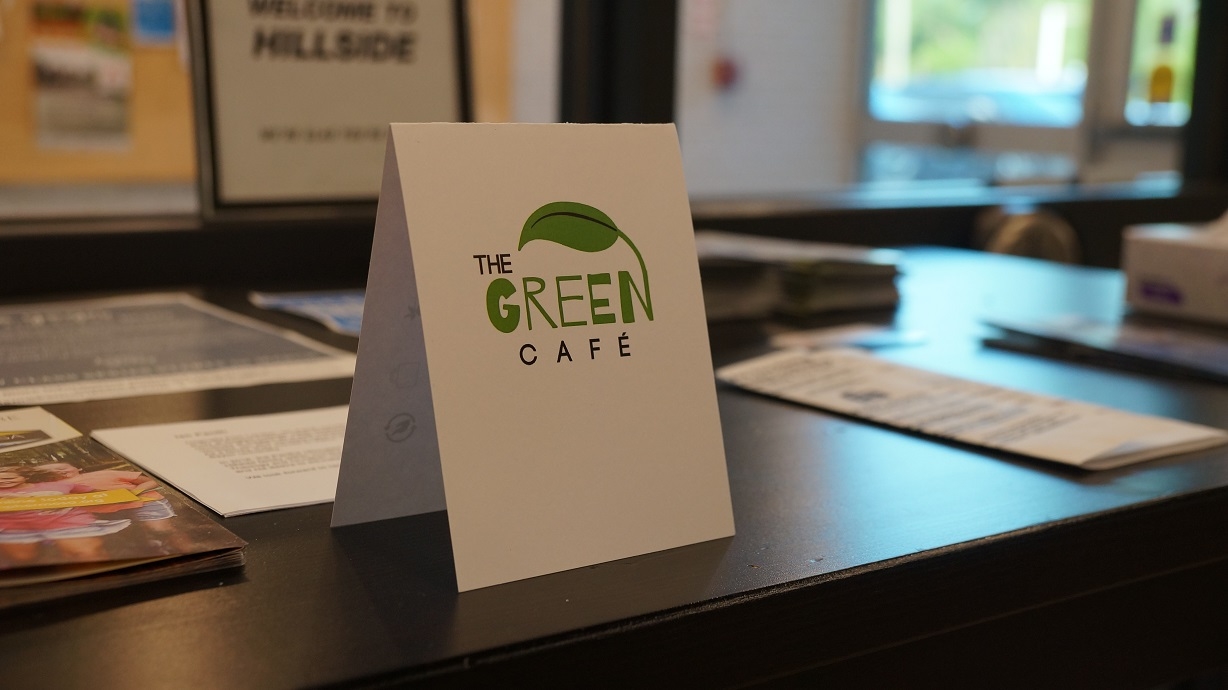
Course: Grade 9 Geography
Date: Spring 2019
Teacher: Stephanie Barker
The Green Café was a grade 9 Geography project where the students planned and implemented a pop-up coffee shop that was as environmentally friendly as possible. The students examined issues such as climate change, plastic pollution, free trade vs. fair trade, and food supply chains. The students tackled how to solve these big issues by making environmentally friendly business decision for the coffee shop. Their solutions included using biodegradable tableware, composting, sourcing local and organic foods where possible, ensuring fair trade for items that required importation, and upcycling garbage to create artwork. Some problems the students faced were ensuring the electricity and heating sources came from clean energy, how to ensure “to-go” cups were composted, and how to advertise without creating waste.
While learning about the environmental challenges in our current society, students were faced with the question “Can we be responsible stewards of God’s creation in our current economic structure? Is it even possible to create a sustainable and environmentally friendly business?”
What I loved about this project was that the student engagement was very high and they were constantly applying their learning to the real world. Also, the students were forced to do many activities that brought them outside of their comfort zones, including making phone calls, learning to take payment, and interacting with community partners and customers in a positive manner. One of the challenges as a teacher was managing 30 students during the event. If I were to do this project again with such a large class, I would have the students work in shifts like a traditional restaurant.
Stephanie Barker, Teacher
After telling my teacher that I didn’t really care about this class because I only want to do photography and own a coffee shop, she suggested that we could make my dream come true this semester. I think that the Coffee Shop idea has been a great way to learn about sustainability and the problems with our environment because there’s a lot more hands-on activity. We have also been practicing real-life work skills and there’s been a lot of room to
be creative.
– Daniel Abbott, Student